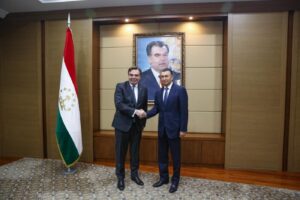When the results of Greece’s second-round local elections were announced in mid-October on a private TV channel by a journalist whose relative ran for office, it caused a stir on social media. But it was hardly the first apparent conflict of interest in Greek media. Indeed, recent months have brought revelations about journalists with side jobs in government ministries.
Greece has a history of often cosy relations between journalists and those in power, be it political or business power.
There exist “intertwined relations” between journalists, politicians and business people, said Giannis Pantelakis, former editor in chief of Greek newspaper Eleftherotypia. “Something else is also true – that a journalist can work in a ministry’s press office and at the same time cover the same ministry for a media outlet”.
A code of journalistic ethics is available on the websites of journalist unions, but this does not mean it is observed, said the Journalists’ Union of Athens Daily Newspapers, ESIEA. “There are media that abide by the rules of ethics, and media that do not,” ESIEA told BIRN.
Some blame the toll of more than a decade of economic crisis on Greek media, where low salaries force many journalists to take on other work. Experts say responsibility lies with the media sector, the unions, state authorities, and the journalists themselves.
“In the past, there were media that could afford to pay a decent wage,” said Pantelakis. “Today, a salary is around 600-800 euros, if that much. Inevitably, a journalist will enter a ministry which willingly gives them ‘power’ because there is a dependence.”
Crisis of credibility
It is now commonplace on Greek television to see product placement in news programming.
The Journalists’ Union of Macedonia and Thrace Daily Newspapers, ESIEMTH, said such a situation is considered “normal” because journalists are sometimes paid from advertising revenues.
“The issue was discussed in the past at the Ethics Council, a statement was issued, without any follow-up,” said journalist Pavlos Nerantzis, a member of the Ethics and Statutory Control Council in Second Grade of the ESIEMTH.
Despina Chronaki, adjunct lecturer at the Communication and Media Studies faculty of the National and Kapodistrian University of Athens and the Journalism and Mass Communication faculty of the Aristotle University of Thessaloniki, said: “While at one level, one could say that the code of journalistic ethics is being violated, on the other hand, you have a very broad spectrum that appears to embrace services and products that are part of the conventions (and grammar) of the media.”
“The media are also profit-making organisations,” Chronaki said. “The commercial department is seeking advertisements which is a key source of profit for the media to keep working. Therefore, the journalist is required to advertise a service/ a product as it is part of how media keep working.”
Since 2010 and the eruption of the Greek financial crisis, there has been a radical changing of the guard in Greek media. Many media outlets did not survive, and many journalists lost their jobs.
Collective agreements no longer cover private sector journalists, and wages are low. This pushes some to accept work in the very institutions they cover.
“There was a journalist who worked in 10 press offices and reported simultaneously,” said a Greek journalist, who spoke on condition of anonymity. “What shocked me was that the colleague who was covering a specific sector also worked in the corresponding ministry. After the crisis period and with such low salaries, it is now ‘acceptable’ for a journalist to have a second job in a company-type office, ministry, or anywhere.”
BIRN contacted public broadcaster ERT and private TV channels ANT1, STAR, Alpha, Mega and SKAI to ask about reports that some of their journalists and editors have side jobs as press officers in state institutions and private companies, but none of them replied.
ESIEA told BIRN that, under Greek law and its own statute, there is nothing to stop a journalist from working simultaneously in a press office. But it would be unethical to take on work in a field the journalist otherwise covers. This, ESIEA said, would raise questions about the journalist’s “professional autonomy and independence”.
ESIEA said it was unable to put a figure on how many journalists engage in such moonlighting.
Opinion or news?
Some journalists present themselves as representatives of the interests they promote.
Pantelakis said it was “sick” to see TV journalists “talking like political party press representatives”.
“This existed to a lesser extent in the past,” he said. “Now, you can’t tell if something is an opinion or news. In this sense, journalists are identified with the centres of power.”
The situation grows murkier still when family relationships are involved.
“Many journalists are married to high-ranking executives of businesses, institutions, politicians, etc,” said the Greek journalist.
Chronaki said this was a “difficult issue”.
“How easy is it to separate family relationships from work? It’s not easy.”
The BBC’s code of ethics states that if a family member or close personal relation of a journalist is standing for election, the journalist must declare this and must not fulfill any role at the BBC “with any direct connection to the candidacy of the family member or contact involved”.
The BBC also says that journalists running for elections should not appear on any programme in their usual roles during election campaigns or, in some cases, even before the official election period.
The ESIEA said that, while most media outlets do not have their own internal codes of ethics, in the last national election in Greece, “television and radio stations suspended the television or radio appearances of journalists who were candidates throughout the pre-election period. In some cases, even earlier, from the moment their candidacy was announced”.
NEWS 24/7, the only media outlet to respond to BIRN’s questions, said it adheres to the ESIEA’s code of ethics but does not have its own. The outlet is regarded as close to the opposition left-wing SYRIZA party. The broadcaster said none of its current journalists had run for office.
‘Continuous violations’
Most Greek media apply, or say they apply, the ESIEA code of ethics. Not even public broadcaster ERT has its own code.
The Greek journalist told BIRN: “The media I work for does not have its own code of ethics; it has the ESIEA code, which I read once when I was a student, and since then I have never referred to it. They didn’t give me any code of ethics when I started working.”
Vassilis Vassilopoulos, Data Protection Officer of ERT, PhD graduate in Ethical Media Governance from Aristotle University of Thessaloniki, Master of Arts in Quality Journalism from University DUK, and affiliate researcher of the University of Vienna’s Media Governance Laboratory, said that regardless of how well the code of ethics might be written, in Greece it is subject to misinterpretation and effectively ignored when it comes to “inappropriate relationships” between journalists and those in position of power.
For broadcast media, the National Radio and Television Council, ESR, is responsible for making sure media behave ethically.
ESIEMTH can also intervene, but only when a complaint is made.
“Unfortunately, this, combined with the general crisis plaguing the industry, leaves the window open for continuous violations,” said Nerantzis.
ESIEA’s code of journalistic ethics was passed in 1998 and updated in 2017 when the association adopted the World Charter of Journalistic Ethics.
Nerantzis said that the code still needs to be updated, but more importantly implemented.
Experts say that violations of the code are so common that even disciplinary bodies cannot deal with them.
“It is difficult for a disciplinary body to deal with individual cases,” said Vassilopoulos.
“Everyone has a responsibility to observe rules and ethics,” said the journalist who spoke on condition of anonymity.
“The problem is multi-level and multi-dimensional; it does not only concern the way journalists operate, their working conditions, but it is also a set of responsibilities for which the state has the first role”.
Source : Balkan Insight







































